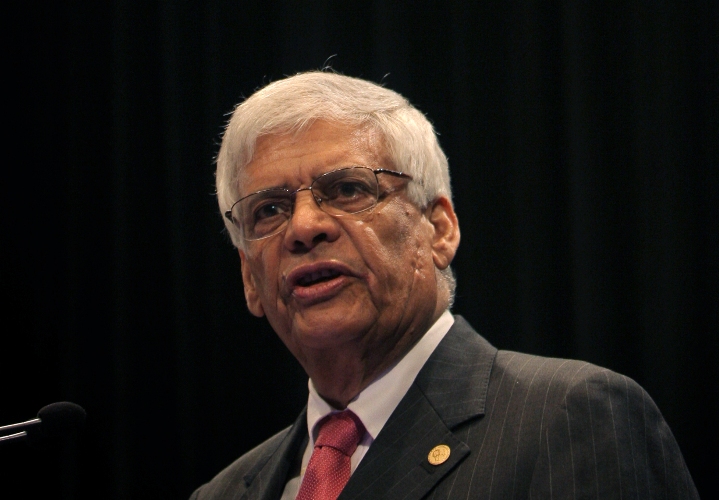The OPEC bi-annual meeting in Vienna disintegrated this afternoon with members disagreeing strongly on whether to increase production.
The meeting has been billed as openly acrimonious, with Saudi Oil Minister Ali al-Naimi branding it “one of the worst meetings we have ever had”.
“Unfortunately we are unable to reach a consensus to reduce or raise production,” Organization of the Petroleum Exporting Countries Secretary General Abdullah El-Badri told reporters.
Gulf Arab delegates said Iran, Venezuela and Algeria were among those to refuse to consider an output increase. The UAE and Qatar stood with Saudi, with Mohammed bin Dhaen al-Hamli, the oil minister for the United Arab Emirates, speaking of “tight” supplies before the meeting. He added, “If there is a need for more oil, we will supply more oil.”
Qatar’s energy minister, Mohammed Bin Saleh Al-Sada, was more unequivocal, saying outright that he backed an output level increase.
Non-Gulf delegates said Saudi Arabia had proposed an increase on top of April supplies that was too high for them to contemplate, according to Reuters.
The meeting was predicted to be the body’s most fractious for several years, though most analysts assumed Saudi Arabia’s clout would win out.
The Kingdom had been pushing for an increase in production of 1.5 million bpd, and is expected to press on with a unilaterateral production increase of at least 500,000 bpd.
The chief opponent of a production increase appears to have been Iran, whose outbursts in respect of the Arab spring have seen relations with gulf states decline dramatically.
Before the meeting Iran’s acting oil minister, Mohammad Aliabadi told the assembled press that the “world remains well-supplied with oil, with ample spare capacity and adequate stock levels”.
The noxious relationship between Iran and Saudi appears to have dominated proceedings, with the conflict in Libya barely getting a mention, despite the loss of sweet,light Libyan oil being one of the most disruptive factors affecting the level and volatility of oil prices.
OPEC appears to be degenrating into a dysfunctional body at a crucial time for the world economy.
Libyan representative Omran Abukraa was reported to have attended the meeting, but entered by the back stairs to avoid confronting the press.
The news has already send oil prices rising after a pre-meeting drop, and will worry the heads of ailing advanced-world economies hoping for lower oil prices to revivify waning growth.
OPEC is due to reconvene on 14 December, though El-Badri expressed hope for a meeting in three months’ time.




